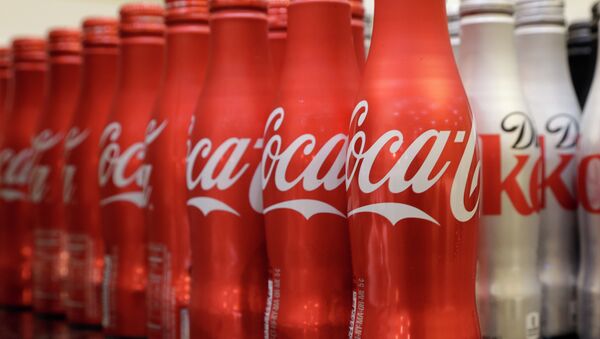Some of these experts have written online pieces for American Heart Month, suggesting a mini-can of Coke or a small soda as a snack in their diet plan.
Such articles offer a window into the many ways food corporations work behind the scenes to promote their products, often with the help of a trusted official.
The Coca-Cola Company does not see anything wrong with this strategy, comparing the posts to "product replacement deals a company might have with TV shows," the Associated Press reported.
"We have a network of dietitians we work with," said Coca-Cola spokesperson Ben Sheidler, declining to disclose the amount paid to bloggers.
"Every big brand works with bloggers or has paid talent."
Other companies like Kellogg’s and General Mills have provided continuing education classes for dietitians and funded studies that burnish the nutritional images of their products as a means to attract and keep customers.
PepsiCo Inc., for instance, have also worked with dietitians, who suggest its Frito-Lay and Tostito chips to be healthy on local TV segments.
In February, Coca-Cola Co. focused on the theme of "Heart Health & Black History Month," in its nutrition campaign strategy.
One piece suggests a mini can of Coke as a "refreshing beverage" option, while another refers to its small size options as "portion-controlled versions of your favorites," putting Coke in the same category as a pack of almonds or pre-portioned desserts.
Although Coca-Cola Co. launched an ad campaign against obesity in 2013, soda is known to be one of the primary beverages responsible for skyrocketing obesity rates in the US.
The report suggests the company is pushing its mini-cans as a guilt-free way to enjoy cola. The company anticipates sales growth, even with the higher price per ounce for the smaller cans.
Some authors of the pieces are listed as "consultants for food companies, including Coca-Cola," seemingly trying to avoid the assumption they are paid by the soda company. Others say the ideas are their own.
While some nutrition experts continue on with their mission to sway Americans based on their no sugary-beverage recommendation, many see a fine line between what is considered nutritious versus what is a commodity.
According to a recent Wall Street Journal report, the Coke company axed at least 1,600 white-collar jobs globally as part of a cost-cutting move in response to sluggish soda sales.




